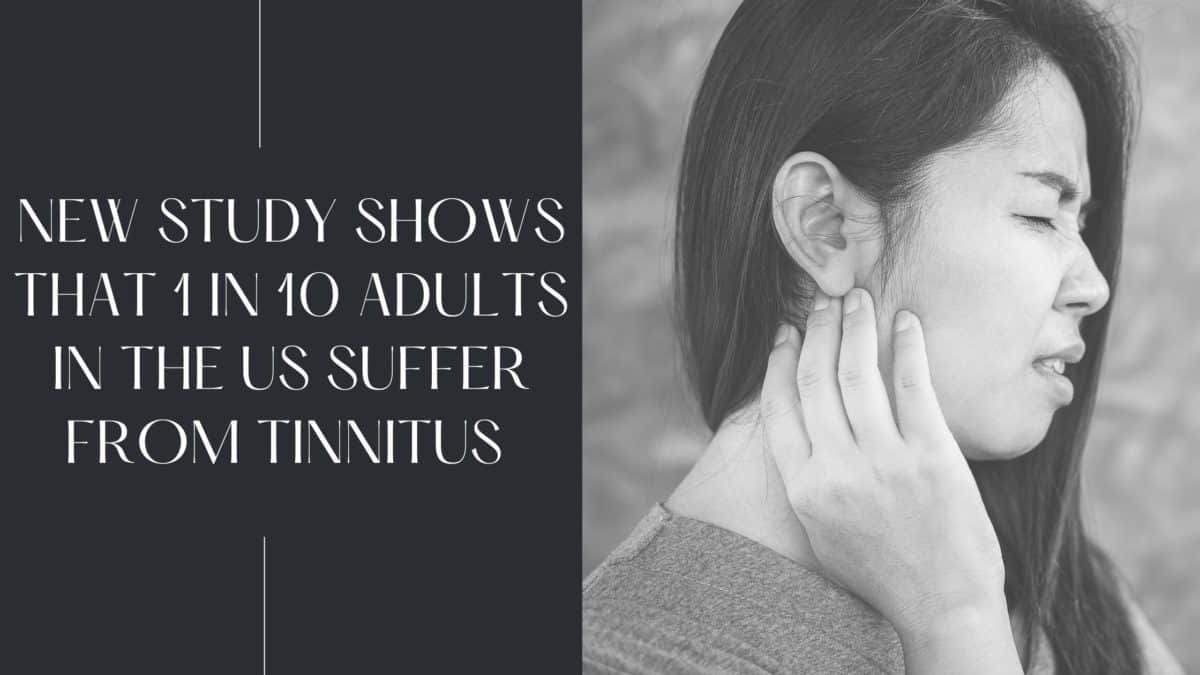- The Connection Between Hearing Loss and Dementia - July 30, 2024
- The Advantages of Rechargeable Hearing Aids - July 16, 2024
- How to Enjoy Music Festivals While Protecting Your Hearing - July 3, 2024
It’s fairly commonplace for people to enjoy peace and quiet as we age. Scientists agree that younger people are better able to filter out background noise and other distractions. As we age, we lose our ability to do so and end up preferring quieter environments.
You may find this happening in your own life. However, there is a condition that can crop up later in life that threatens to disrupt your ability to enjoy the silence. Tinnitus is a condition that impacts many Americans, characterized by a non-stop ringing or buzzing in the ears that only they can hear when no external sound is present.
How many people have tinnitus?
According to researchers from the University of California, Irvine, almost one in ten adults has had episodes of tinnitus within the past year. A large portion — one third — reported that their tinnitus symptoms were constant and ongoing.
The Centers for Disease Control have previously estimated that as many as 15 percent of Americans experience tinnitus in some form. As many as two million people in the US have cases of tinnitus that are debilitating.
What exactly is tinnitus?
People can experience tinnitus in one or both ears. It is usually diagnosed when a person reports hearing a ringing, buzzing, or some other form of sound when there is no external sound present. In very rare cases, people can experience ‘Musical Ear Syndrome’ in which they hear music or melodies because of their tinnitus condition.
The degrees to which people experience tinnitus can vary. In some people, they have bouts of tinnitus while in others the symptoms are always present and never go away. Trouble with concentration, irritability and other emotional problems, depression and anxiety are all associated with tinnitus.
Connection between Hearing Loss and Tinnitus
There is often a link between hearing loss and tinnitus. While around thirty percent of people with hearing loss have tinnitus, nearly every person with tinnitus has some hearing loss.
We know that excessive exposure to dangerous noise, due to both occupational and recreational environments, results in higher rates of tinnitus. However, age-related hearing loss, injury or circulatory problems can also cause cases of tinnitus.
Famous musicians with tinnitus
While for many decades people with tinnitus have suffered in silence, more people are speaking up about their own condition and bringing much-needed awareness to the topic. As examples of people whose tinnitus is the result of occupational exposure, famous rock and roll musicians are leading the way in speaking frankly about tinnitus.
Neil Young, Eric Clapton and Pete Townshend have all publicly announced that they live with tinnitus and have even canceled concerts when their conditions are particularly troublesome. And, tinnitus doesn’t discriminate when it comes to age. While it’s more likely that older people experience the condition, even Coldplay’s Chris Martin has spoken about his own tinnitus.
Solutions in dealing with tinnitus
There are ways to live with tinnitus, though the condition is not reversible. Chris Martin now wears earplugs at all performances and carefully watches his exposure to loud noise. You can also take protective measures with your hearing health which can help to decrease tinnitus symptoms and at the very least, lessen future damage.
Surprisingly, mindfulness techniques have proven very successful in helping people manage their tinnitus. These therapies, like a focus on breathing, can help people develop resilience and calm in the face of the ever-present irritation of tinnitus.
Some hearing aids are made specifically to help alleviate the symptoms of tinnitus. It’s been found that playing white noise or soothing sounds can mask tinnitus, which can be accessed through settings on select hearing aids. Some people find that wearing hearing aids can decrease episodes of tinnitus because the cause of tinnitus — hearing loss — is being treated.
See an audiologist for tinnitus help
While a mere 50 percent of people who experience tinnitus consult a physician, less than 10 percent of those had inquired about interventions like hearing aids. Tinnitus is not a condition you have to suffer through on your own. Our team of highly trained hearing health professionals can walk you through a simple hearing exam and work with you to explore options in treating your tinnitus.

